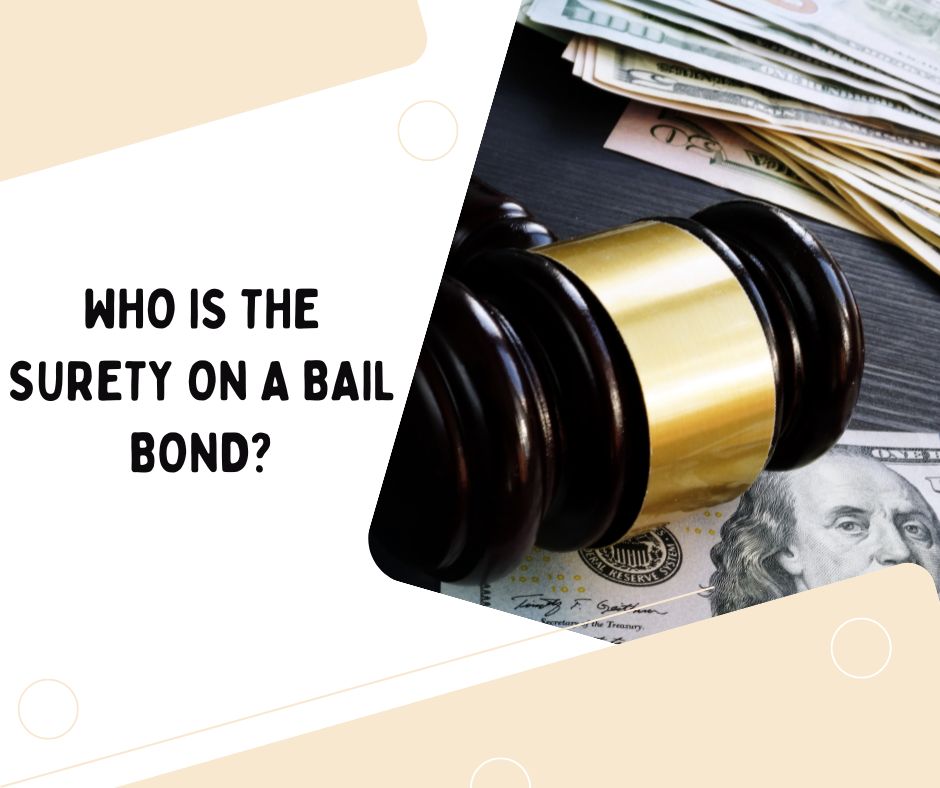When someone is arrested and needs to post bail, they will need to find a surety. This is a person who agrees to be responsible for the defendant appearing in court. They will also be responsible for reimbursing the court if the defendant does not appear. In this blog post, we will discuss what surety is and how they are used in the bail bond process.

What is a bail bond?
A bail bond is a document that is issued by a court and allows an accused person to be released from custody until the date of their trial. The bail bond serves as a guarantee that the accused will appear in court on their scheduled date. In return, the court may require some form of collateral, such as money or property, to ensure that the accused appears in court.
How does a bail bond work?
When a person is arrested, they are brought before a court and the judge will set a bail amount. This amount is determined by the severity of the crime and other mitigating factors. If the defendant or their family cannot pay this bail, they can turn to a bail bond agency for assistance.
What does surety mean on a bond?
A surety is an agreement wherein one party, the surety, guarantees to another party that it will perform an obligation of a third party if the third party fails to do so. For example, on a bond, the surety will guarantee payment of a certain sum if the principal does not complete the obligations outlined in the bond agreement.
What is the difference between a bond and a surety?
A bond is an agreement between two or more parties, whereby the obligee (the party who requires assurance) receives financial compensation or other contractual obligations if the principal (the party providing assurance) fails to fulfill their obligations. A surety, on the other hand, is a third party who guarantees that the principal will fulfill their obligation and will be liable if the principal fails to do so. In other words, a surety provides an additional layer of security for the obligee in cases where the principal might fail or be unable to fulfill their obligations.
Who can not be a surety?
Generally, only individuals (18 years or older) can serve as a surety. Companies and organizations cannot become sureties. Also, the individual must be able to demonstrate financial stability and good character to be eligible for suretyship. A person who has committed fraud in the past or has a criminal record is usually not eligible to become surety. Moreover, anyone who is already a surety in another case cannot become a surety again until that other case has been released.
What does surety release mean?
Surety release is when a third party, such as a surety company, provides financial assurance to a court or government agency that guarantees the individual’s compliance with the legal terms of their bail. The surety company is then responsible for making sure that the offender does not fail to appear in court or violate any other conditions of their pre-trial release. If the individual does fail to appear in court or violates any of their bail conditions, the surety company is responsible for paying a penalty to cover any fines and/or fees associated with the offense.
Who is the surety on a bail bond?
The surety on a bail bond is the individual or company that has agreed to guarantee payment of a defendant’s bail. Typically, the surety will post the entire amount of the bond or provide collateral in exchange for guaranteeing payment. This can be done through an insurance agency, bank, or bonding business. The surety is responsible for ensuring that the defendant appears in court when required and, if they fail to do so, may be held liable for the payment of their bail. The surety also takes on responsibility for any costs or damages incurred due to the defendant’s actions while out on bail. As such, a competent surety must be chosen as not all are the same.
What is the role of surety in bail?
A surety is someone who agrees to be responsible for the accused if they fail to appear in court. The surety will typically provide a bond, which is an amount of money that guarantees the appearance of the accused at all required court hearings. If the accused does not make an appearance, then the surety must pay out the full bail amount set by the court. If the surety fulfills their obligation, then they will be reimbursed for any expenses incurred.
Does a surety have to pay money for a bail bond?
Yes, a surety must pay money for a bail bond. The amount of money required is typically determined by the court and is based on the severity of the charges faced by the person being released on bail. Generally, sureties are responsible for paying 10 to 15 percent of the total amount of the bail set by the court. For example, if the bail is set at $20,000, the surety must pay a minimum of $2,000 for the bond. In addition to this amount, sureties may also be required to pay additional fees and costs associated with processing and issuing the bond.